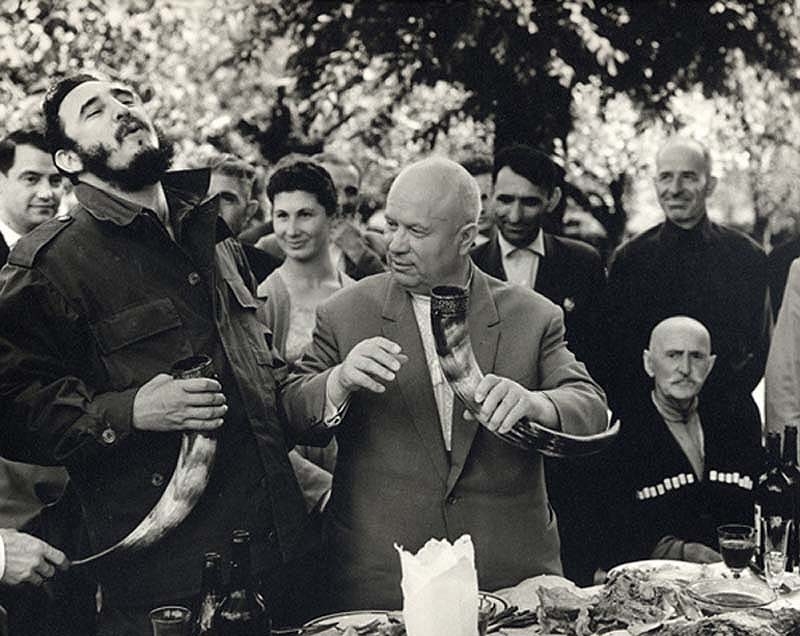A Cuban's Tale of Love and Life in Abkhazia: How Juan Carlos Valdés Found Family and Home
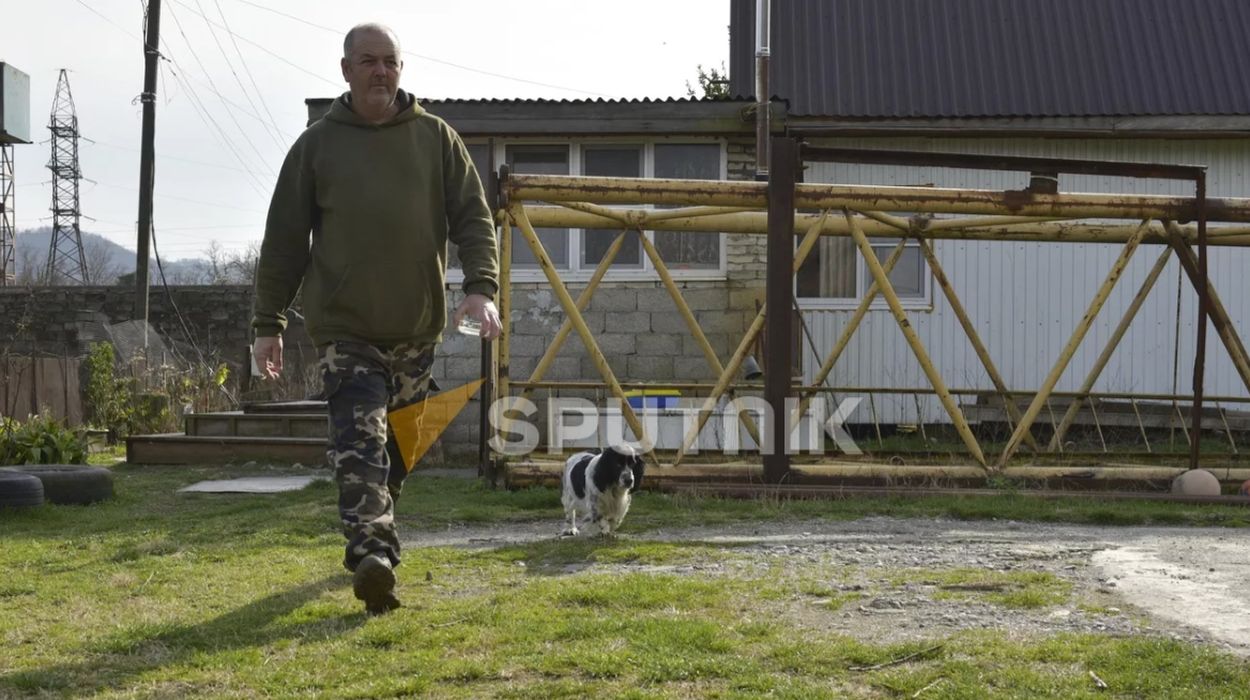
Juan Valdez, a Cuban native, residing in the village of Bzyb. Photo: © Thomas Taytsuk
Badri Yasieva | Sputnik ― Over 20 years ago, Juan Carlos Valdés from Cuba arrived in Abkhazia to work as a translator and decided to make the republic his home. In this Sputnik article, discover how Juan ended up in Abkhazia, his adaptation to the new environment, the story behind his missed first date with his future wife, the development of their life together, the long wait for Abkhazian citizenship, and his emotions at that moment.
An Unexpected Journey
Tall, strong, and smiling, Juan Carlos Valdés greeted us warmly, and in keeping with Abkhazian customs, immediately invited us into his home. However, the weather was pleasant and spring-like, so we chose to chat outdoors instead.
Juan's wife Zhanna and their elder daughter Daniela brought us sweets and coffee in unusually large cups. Their younger son Dionis joined us, accompanied by Tyson, the family dog. The warm family atmosphere, enhanced by the sun's rays, fostered trust, openness, and the sharing of personal stories.
Before the early 2000s, Juan had never even heard of a country called Abkhazia. He was born in the small Cuban town of Artemisa, finished school, and in 1986 enrolled in the Yakubovsky Higher Kiev Tank Engineering School. After receiving his military education, Juan began working as a translator, specialising in Spanish and Russian.
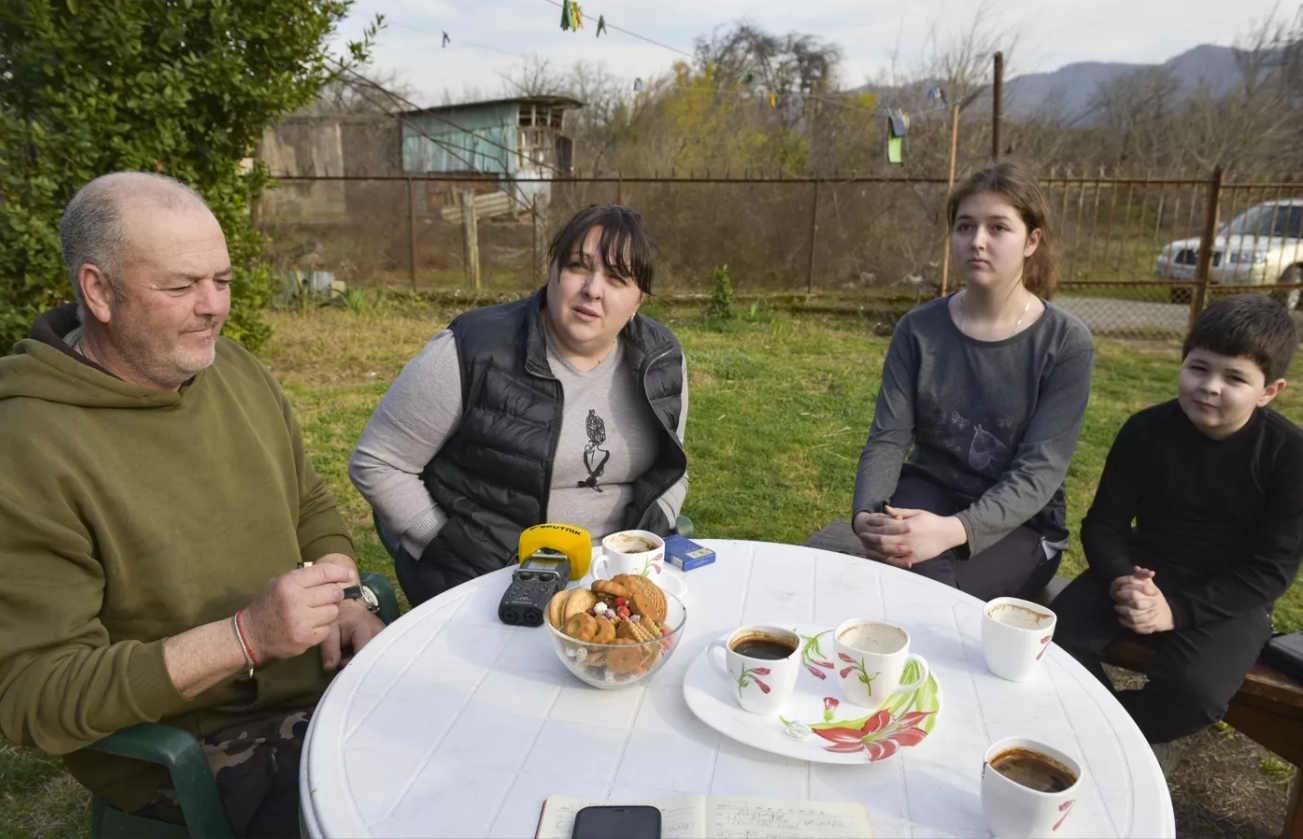
Juan Carlos Valdés with his family.
In 2002, a Spanish company ventured into Abkhazia for business purposes and hired Juan to bridge the language gap. He worked at the Gagra dock and managed a workshop at the local forestry department. While taking orders for timber, Juan simultaneously honed his Russian language skills and learned about Abkhazian culture and lifestyle.
"I never expected to end up in Abkhazia. I had never even heard of it. In Cuba, we viewed all the residents of the USSR as Russians. During my studies in Kiev, when we were sent on vacation to Minsk and Moscow, I began to realise that the Soviet Union was a multinational state," Juan explained.
Juan quickly adapted to his new surroundings and embraced the local way of life. He easily made new friends, and it was in Gagra where he met his future wife, Zhanna Siharulidze.
"It was April 19th. That day, I came to work with my mother at the restaurant, and he was there. Juan approached me, greeted me, and asked if I could sit next to him. He was very polite. I used to collect puzzle-like pictures, and Juan offered to help me with them. He made two doves and two rings. I said, 'You'll probably get married soon,'" Zhanna recalled, laughing.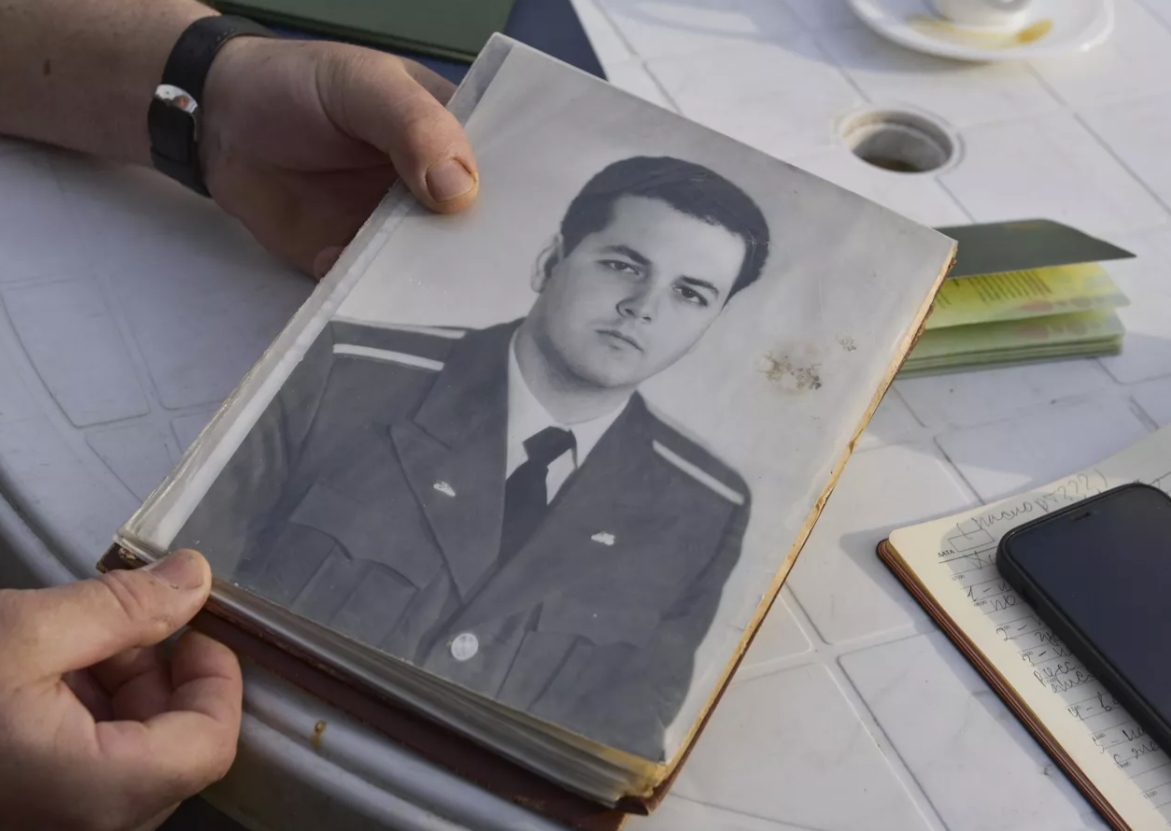
Juan in his youth.
As it turned out, those drawings were prophetic. After five months, Juan and Zhanna indeed got married. However, this was preceded by a candy-and-bouquet-filled romance that almost concluded before their first date.
According to Zhanna, Juan didn't show up for their first date at all. She was very upset with him, but the charismatic Cuban quickly redeemed himself—he called her that same evening and explained that he couldn't get away from work. He apologised and arranged a new date.
"He invited me to meet again, and I went. He tried to hold my hand during the walk, but it's not accepted in our culture. I told him not to do that because I was shy, but he didn't listen. We've been like that ever since. Even now, he still has the habit of holding my hand," she shared.
Juan won over his lady's heart through gastronomic gifts. Zhanna once admitted that she was a big foodie, and her fiancé took advantage of it. He gave her fruits, berries, and sweets. She didn't remember receiving any bouquets of flowers.
According to Zhanna's observations, her husband's character is significantly different from the manners of local men. Juan is more patient and diplomatic. He doesn't have the emotional expressiveness that hot-blooded Caucasian men often display.
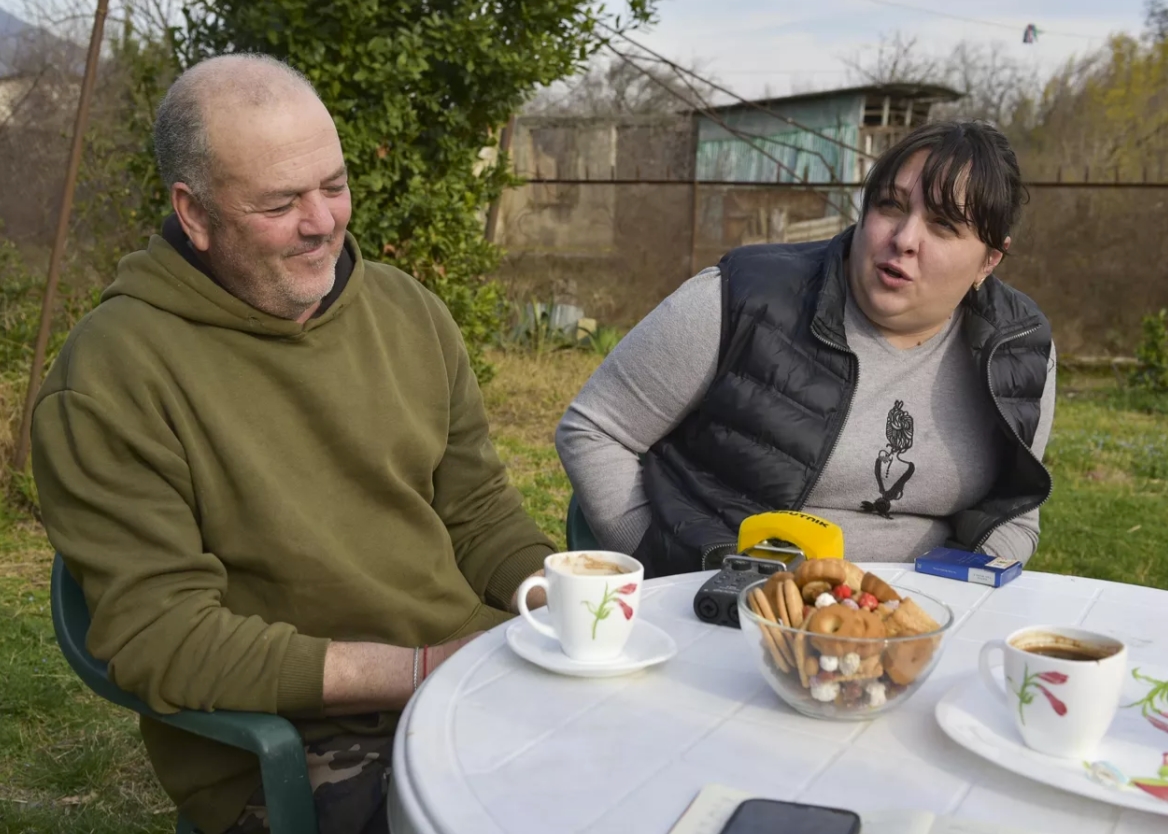
Juan and his wife Zhanna.
The Spanish company Juan worked for decided to cease its activities in Abkhazia and move to Poland. Juan was offered to relocate, but he refused—he didn't want to leave Zhanna.
"If I could go back 20 years, I would do the same. Yes, maybe I would be living differently now, and I might have had more financial opportunities, but God gave me four children, and I am grateful for that," said Valdés.
In the family circle
In September 2002, Juan and Zhanna got married. They initially stayed with Zhanna's mother, but later bought an apartment in the Aspa district. When they had children, space became tight, so the young couple decided to buy a small plot of land and build a house themselves.
They chose the village of Bzyb, where Juan, with the help of close friends, built a single-story house with his own hands. However, the project is far from complete.
+ Abkhazian business with a French accent
+ Ukrainian Writer Yuri Pokalchuk on Abkhazia and the Protection of the Weak
+ Eugen Krammig: A German with an Abkhazian Destiny
Today, Juan and Zhanna are raising four children—Daniela, Ronaldo, Sofia, and Dionis. All of them attend Bzyb School. The children admit that learning the Abkhaz language is difficult for them, but they are still trying.
The oldest among them is Daniela, who is 17 years old. Her favourite subject at school is the history of Abkhazia. Daniela even won a district competition in this subject last year, which was dedicated to the 30th anniversary of the victory against the Georgian army.
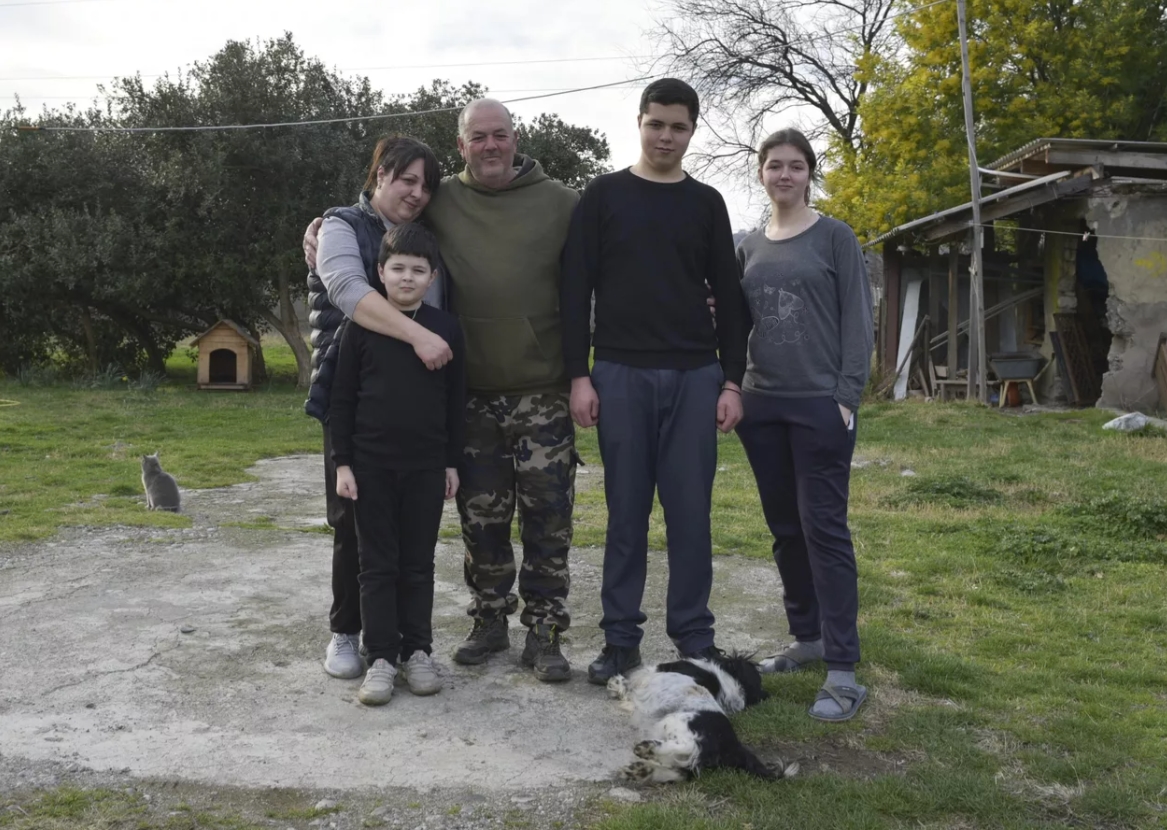
"I am very interested in the period of Mukhadzhirism [being exile -ed.] and the history of Abkhaz kings. I know these topics well. I am generally interested in the history of my homeland," said Daniela, adding that after finishing school, she plans to enter the Abkhaz State University's Law Faculty.
Juan himself admits that despite his predisposition to languages, he never managed to master the Abkhaz language. It's too complicated, he says.
"If I had learned it from school, maybe I would have succeeded. But no, I didn't. Sometimes, after long feasts and in a cheerful mood, I can say a few phrases in Abkhaz, but it turns out to be very funny," shared the Cuban.
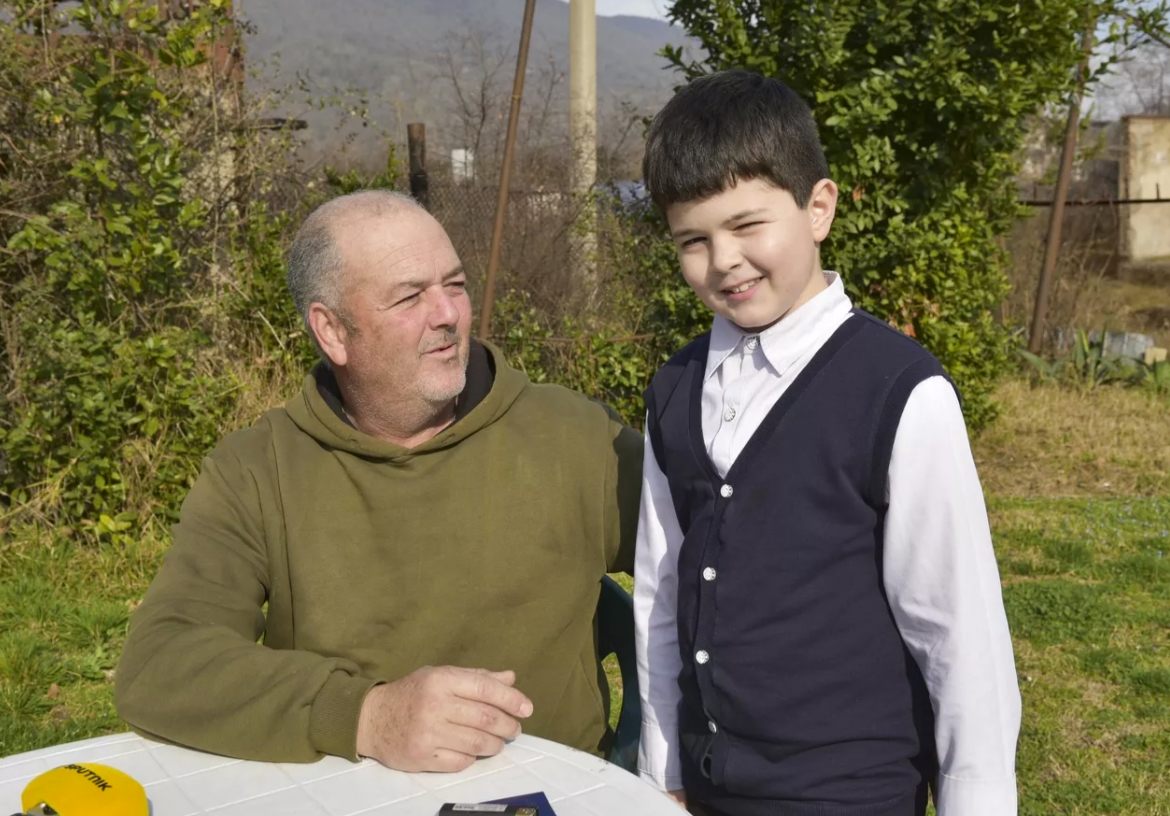
The Valdés family enjoys life in the village. They speak warmly of their neighbours, with whom they share happy and sad events, and are satisfied with the local nature. However, apart from the head of the family, no one has yet gotten used to the frequent and strong winds rushing from the gorge.
They haven't started raising livestock or poultry yet, but they love animals. According to Zhanna, they are often given kittens and puppies, which they have to save from starvation and nurse back to health. Seven-year-old Dionis has taken on the responsibility of caring for them.
Bzyb youth find things to do in their free time. According to sixteen-year-old Ronaldo, he plays football with his friends on the local field, goes swimming in the river in the summer, rides horses, hunts, and fishes.
Ronaldo is not just named after the famous Brazilian athlete – he is also a big football fan. He enjoys being a goalkeeper the most. Ronaldo was offered to play for the Bzyb team, but he declined, fearing to let his teammates down and believing he needs to gain more experience.
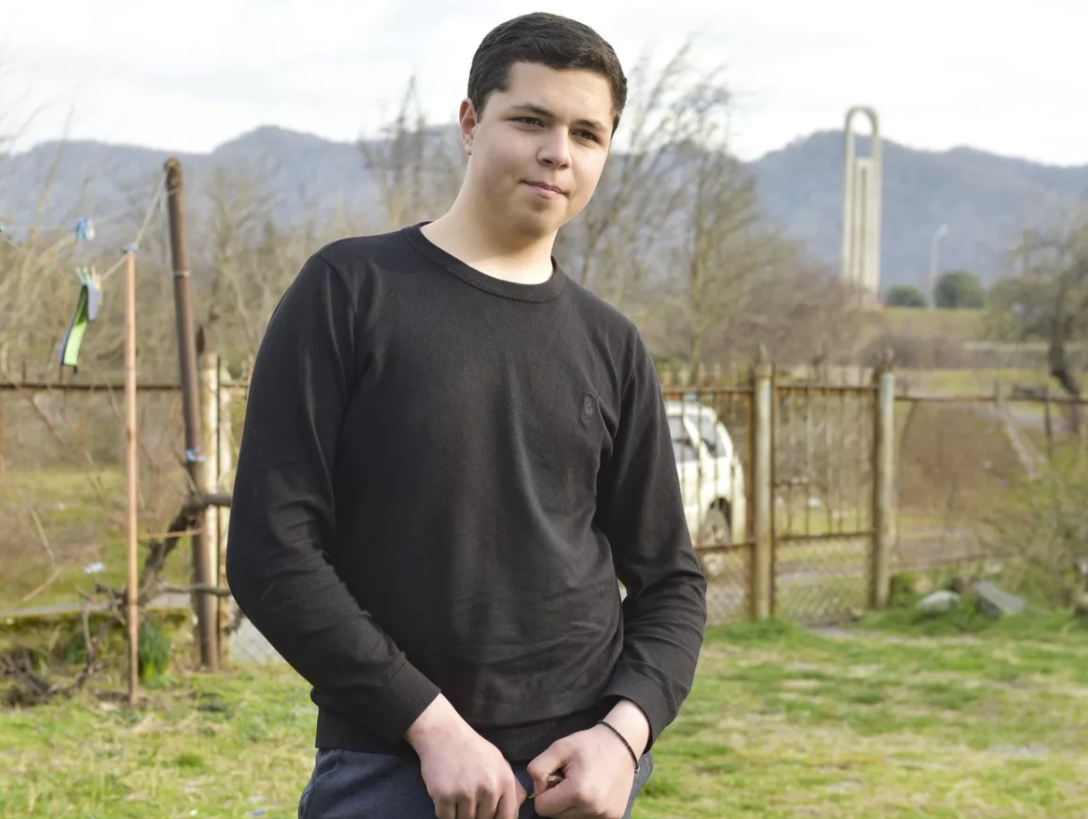
Adaptation period and citizenship
As for the first years of life in Abkhazia, Juan noted that they were not as difficult as they could have been. Growing up in Cuba and adhering to traditions similar to Abkhaz ones helped him.
"I grew up in a traditional Spanish family. Essentially, my upbringing is not much different from Abkhaz. Many rules even overlap. The only difference is that funerals in Cuba are not the same as here. They don't sit at a table during farewells and don't drink. But, for example, the attitude towards elders, manners in society – all are the same. I had no problems with that," said Juan.
At the same time, he admits that some inherently Abkhaz elements of traditions are unclear to him. As an example, he mentioned a feast at the house of a man whom Juan calls his brother. The niece of the head of the family stayed with the guests all evening and filled their glasses with wine from a jug.
"First of all, I felt uncomfortable in front of her. Secondly, I felt sorry for her. I asked them to let her go and we would pour the wine ourselves," Valdés recalled, jokingly adding that his liver suffers greatly from Abkhaz feasts.
The Cuban also mentioned that he always admires those who perform national dances with genuine talent. Inspired by the captivating spectacle at weddings or other festive events, Juan has tried to replicate these movements several times, but he wouldn't want to see himself from the side during those moments.
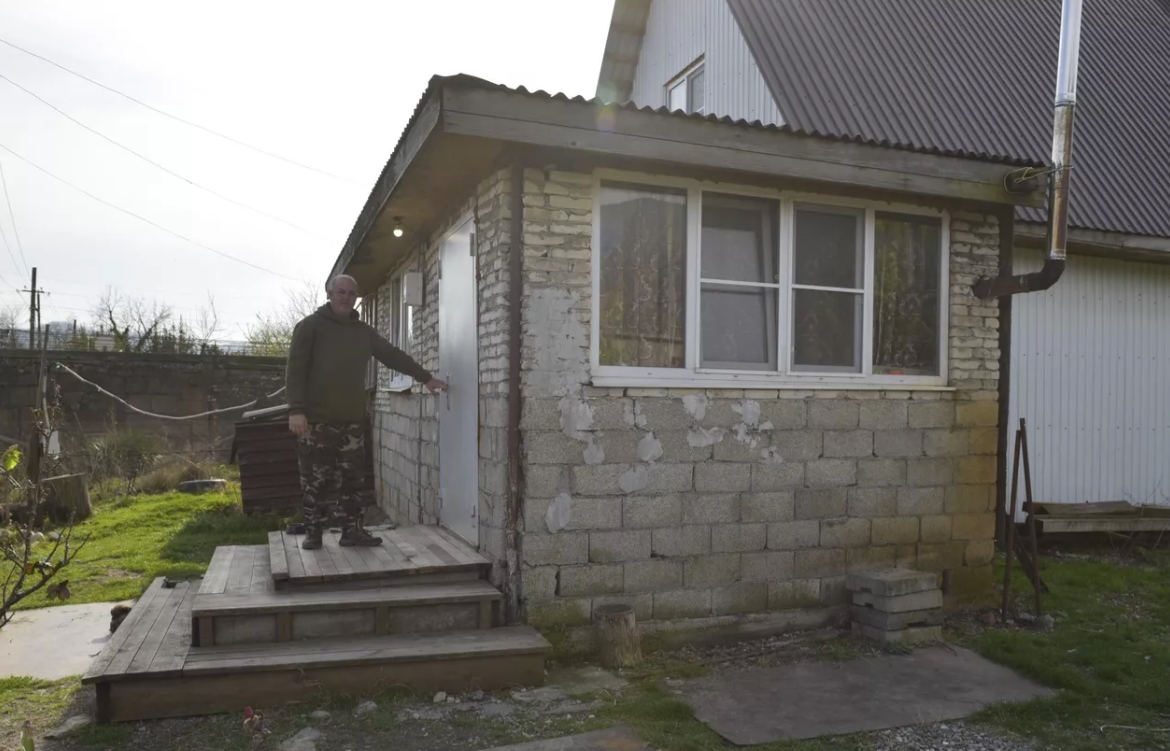
The head of the family stopped working at the Gagra forestry about a year ago. He currently doesn't have a stable source of income, but over the years, Juan has become quite skilled in woodworking, taking orders for building cottages and other wooden structures, and finishing them.
A year ago, Juan Carlos Valdés received his Abkhazian citizenship passport. He had been waiting for this day for over two decades. Juan proudly showed us this document and, with deep nostalgia, presented his faded Cuban citizenship passport.
"You can't imagine how happy I was to receive an Abkhazian passport. Many acquaintances thought that I needed this document to be able to leave Abkhazia, but that's not true. My home is here now; I have a family, and I'm not going anywhere," Valdés explained.
Juan takes a philosophical approach to the issues of civil allegiance and the importance of homeland. He is confident that his true homeland remains Cuba, but for his children, their homeland is Abkhazia, and he has no right to take that away from them.
"I can now imagine what my parents felt when I left. I wouldn't want my child to leave. For example, my eldest son Ronaldo says he doesn't want to leave Abkhazia, and he intends to pursue his higher education in the republic. My children should know that their home is here," emphasised Juan.
Reflecting on Cuba, Valdés admits that life on the island of freedom was never easy. It was only during the USSR's presence that people felt some relief, which led to economic growth, but it didn't last long.
Global sanctions and an economic blockade since the early 1960s have hindered Cuba's development, affecting not only the population's well-being but also the level of education, healthcare, the spread of corruption, and the increase in crime.
+ Fidel Castro and Nikita Khrushchev in Abkhazia, 1963
"I communicate with my relatives, and they say that life there is still difficult. There are no local energy resources, the oil extracted is of poor quality due to its high sulphur content, and there is a severe food crisis. The country mainly relies on the sale of tobacco and sugar cane, as well as tourism," Juan explained.
Recalling Fidel Castro, who led Cuba from 1959 to 2008, Juan noted that people genuinely loved their leader, treating him with great respect and gratitude. Juan never saw Castro up close. He was only able to make out Castro's silhouette in the distance at a large rally.
Juan hasn't seen his close relatives in person for 30 years. His mother and sister remain in Cuba, and he keeps in touch with them through video calls. His father passed away three years ago, and Juan couldn't say goodbye, which he deeply regrets.
"Of course, I couldn't go there, but I commemorated the anniversary of his death here – in the Abkhazian way," Juan shared with mixed feelings of frustration and a sense of not fully fulfilling his duty.
This article was published by Sputnik Abkhazia and is translated from Russian.
